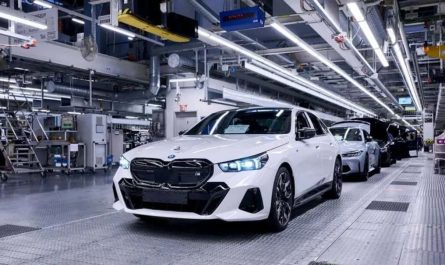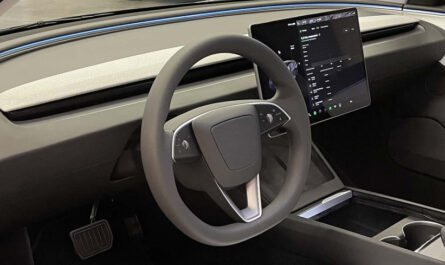Advancements in Battery Technology
The electric vehicle (EV) market is poised for significant advancements in battery technology by 2025, mainly through the development of solid-state batteries. These innovative batteries replace the traditional liquid electrolyte with a solid material, resulting in a higher energy density and improved safety profiles. The significant increase in energy density means that solid-state batteries can store more energy relative to their size, allowing for longer driving ranges on a single charge. This advancement directly addresses one of the critical concerns of potential EV users: range anxiety.
An additional enhancement within battery technology is the continual improvement of lithium-ion batteries. Researchers are focused on enhancing the chemistry and materials used in these batteries to achieve greater battery density. This evolution enables manufacturers to produce lighter, more efficient battery packs, further extending the range of electric vehicles. Furthermore, advancements in battery management systems allow for better thermal regulation and overall performance, contributing to these power sources’ safety and reliability.
Rapid charging capabilities are another area where significant developments are emerging. Innovations in charging infrastructure are crucial for the widespread adoption of electric vehicles. With advancements in ultra-fast charging technologies, consumers may soon be able to recharge their EVs in minutes instead of hours. This is achieved through higher voltage charging systems that enable the transfer of more energy at a quicker rate while maintaining battery health. Such capabilities enhance user convenience and contribute to increasing consumer acceptance of electric vehicles.
Ultimately, these advancements in battery technology promise to transform the electric vehicle landscape by 2025. By improving range, reducing charging times, and enhancing safety features, the evolution of battery technology will likely lead to significant market growth and broader consumer adoption in the years to come.
Enhanced Charging Infrastructure
The evolution of electric vehicle (EV) technology has prompted significant advancements in charging infrastructure. As we approach 2025, focusing on enhanced charging solutions is essential to ensure efficient and widespread EV adoption. One of the most notable innovations expected is the rollout of ultra-fast charging stations. These stations will allow EV owners to recharge their vehicles rapidly, significantly reducing the time spent at charging points. With power outputs reaching 350 kW, these ultra-fast chargers could provide up to 300 miles of range in 15 minutes, effectively alleviating consumer anxiety.
In addition to ultra-fast charging, wireless charging technologies are set to gain traction. This innovative approach utilizes inductive charging pads, enabling EVs to charge without physical connectors. As this technology progresses, urban areas will likely feature charging lanes embedded with these pads, making the charging process seamless and user-friendly. Such systems are expected to contribute to a more sustainable and efficient urban environment, where the need for large, obtrusive charging stations can be mitigated.

Public-private partnerships play a crucial role in expanding electric vehicle charging networks. Governments worldwide increasingly collaborate with private sector entities to deploy charging stations across urban and rural areas. These partnerships aim to create a more interconnected charging infrastructure, providing consumers with easily accessible rest and recharge points. Additionally, government initiatives are likely to include incentives for deploying charging stations, thus encouraging more companies to invest in the necessary technology and infrastructure. These innovations are designed to create a robust charging ecosystem that accommodates the growing electric vehicle market, addressing concerns like range anxiety while promoting sustainable transportation solutions.
Integration of Smart Technology and AI
Integrating intelligent technology and artificial intelligence (AI) in electric vehicles (EVs) is poised to revolutionize the automotive industry by 2025. Advanced driver-assistance systems (ADAS) are:
- A prominent feature.
- Equipping cars with capabilities such as lane-keeping assistance.
- Adaptive cruise control.
- Automatic emergency braking.
These systems leverage AI algorithms to interpret data from sensors, cameras, and radar, ensuring enhanced safety and reducing potential accidents. As a result, incorporating AI into these technologies significantly improves the overall driving experience.
Moreover, predictive maintenance powered by AI is transforming how vehicle upkeep is approached. Instead of adhering to routine service intervals, modern electric vehicles can analyze real-time performance data, identifying potential issues before they escalate into significant problems. By utilizing AI models that assess wear and performance metrics, manufacturers can notify drivers of necessary maintenance or repairs precisely when needed, thus optimizing vehicle performance and extending lifespan. This proactive approach to vehicle maintenance saves costs and enhances energy efficiency, aligning with the core values of sustainability that electric vehicles embody.
Enhanced connectivity features in electric vehicles further elevate the user experience. By employing innovative technology, consumers can enjoy seamless integration with their smartphones, allowing for functionalities such as remote vehicle access, real-time traffic updates, and over-the-air updates for software enhancements. This level of connectivity ensures that drivers remain engaged and informed, promoting a more personalized driving experience. As these technologies evolve, they are expected to pave the way for better energy management, ultimately leading to optimized driving patterns and reduced environmental impact.
The Latest Innovations in Electric Vehicle Technology for 2025
Sustainability and Eco-Friendly Innovations
The electric vehicle (EV) industry is transforming significantly, focusing heavily on sustainability and eco-friendly innovations. One of the most essential practices in the production of electric cars is the use of recyclable materials. Manufacturers are increasingly utilizing materials such as recycled aluminum, plastics, and even bio-based materials to reduce the environmental footprint of their vehicles. This shift minimizes waste and promotes a circular economy, wherein materials are reused and repurposed, extending their lifecycle and reducing the demand for new raw materials.
Additionally, green manufacturing processes are becoming standard in the EV industry. These practices involve minimizing energy consumption, reducing emissions during production, and adopting cleaner technologies. For instance, many manufacturers are implementing energy-efficient techniques and utilizing renewable energy sources such as solar and wind power in their production facilities. These changes not only help lower operational costs but also significantly reduce the carbon emissions associated with the manufacturing of electric vehicles.
The trend toward a circular economy is gaining momentum within the electric vehicle sector. Companies design their products with end-of-life considerations, ensuring that components can be easily disassembled and recycled. This approach aligns with global sustainability goals and drives innovation as companies seek new ways to minimize waste and maximize resource efficiency. Moreover, the integration of renewable energy sources for charging EVs exemplifies how these vehicles can play a role in achieving a more sustainable future. By leveraging solar and wind energy, the environmental impact of electric vehicles is further reduced, supporting initiatives aimed at decreasing global carbon emissions.
As we move towards 2025, the continued emphasis on sustainability and eco-friendly innovations reflects the evolving landscape of the electric vehicle industry, positioning it as a critical player in the global effort to combat climate change.



